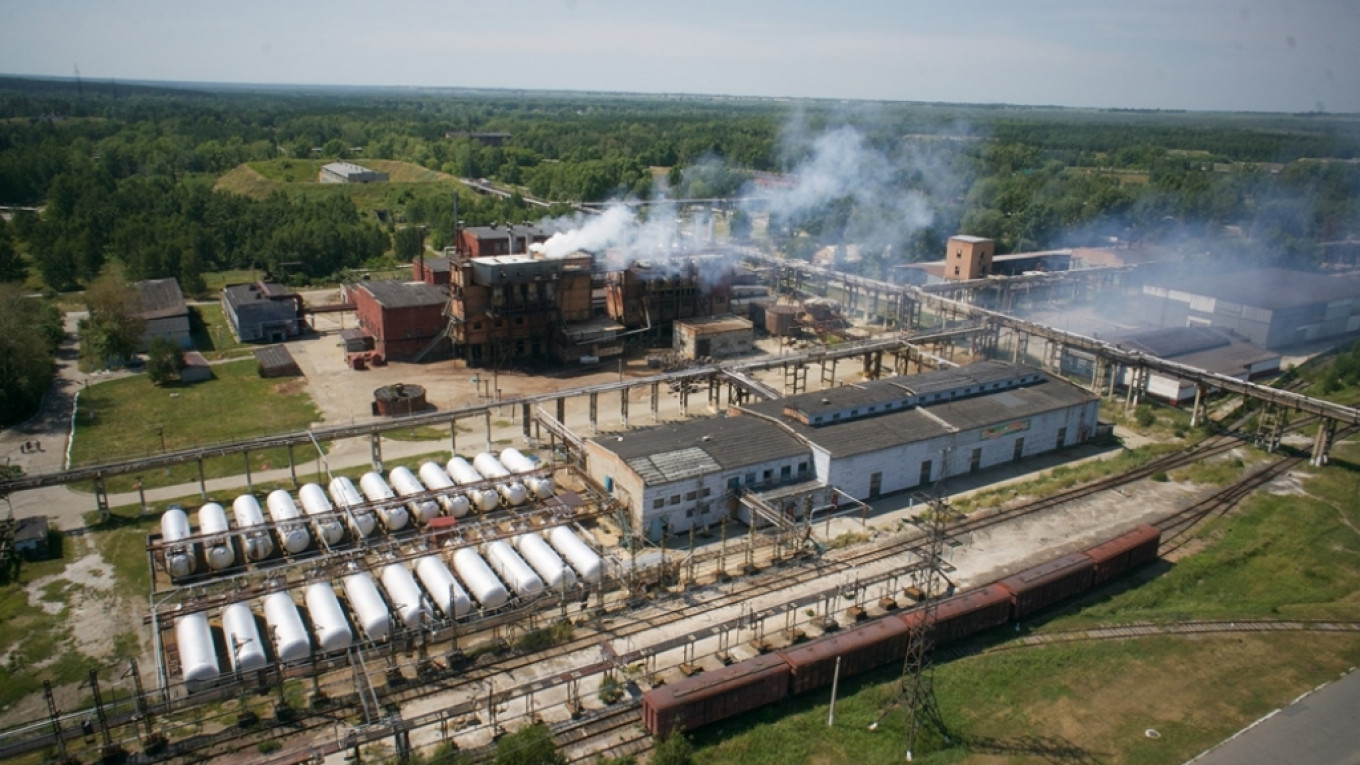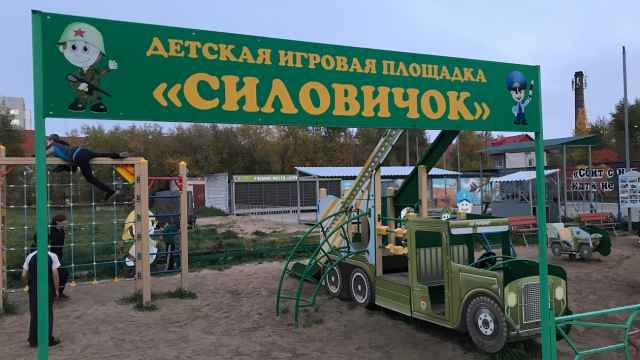An explosives plant in Siberia is undergoing a large-scale expansion to produce the high-powered explosive RDX, Reuters reported Thursday, citing procurement records and sources close to the project.
The Biysk Oleum Plant (BOZ) is reportedly constructing a new production line valued at 15.5 billion rubles ($189 million), with completion initially slated for late 2025. One source told Reuters the timeline was “unrealistic” and has since been delayed.
Russia’s First Deputy Prime Minister Denis Manturov, who visited the site in August 2023 while serving as industry and trade minister, cited a similar figure of 15 billion rubles for the plant’s “comprehensive reorganization.” Russia’s Security Council Secretary Sergei Shoigu also reportedly addressed construction delays in a meeting with the plant’s director earlier this year.
Located some 3,000 kilometers (1,860 miles) east of Moscow, BOZ is far from the reach of Ukrainian drone strikes that have increasingly targeted Russia’s military-industrial sector since the start of the full-scale invasion.
The facility is owned by the Ya.M. Sverdlov plant, which is under European Union sanctions as the “only Russian manufacturer” of the high-powered explosives RDX and HMX.
RDX is a key component in artillery shells, mortar rounds, missiles and aerial bombs. Experts say it is favored for its stability and effectiveness, being less prone to accidental detonation. A hard, white crystalline substance widely used in World War II, RDX is also used in blasting caps for civilian applications.
Reuters estimated the new facility could produce 6,000 metric tons of RDX annually — enough to fill approximately 1.28 million 152mm artillery shells.
Ukraine’s military intelligence has estimated that Russia produced about 2 million 122mm and 152mm artillery rounds last year, while importing an additional 2.7 million from North Korea.
Explosives experts told Reuters that production at BOZ could begin within six to 10 weeks of completing construction work.
A Message from The Moscow Times:
Dear readers,
We are facing unprecedented challenges. Russia's Prosecutor General's Office has designated The Moscow Times as an "undesirable" organization, criminalizing our work and putting our staff at risk of prosecution. This follows our earlier unjust labeling as a "foreign agent."
These actions are direct attempts to silence independent journalism in Russia. The authorities claim our work "discredits the decisions of the Russian leadership." We see things differently: we strive to provide accurate, unbiased reporting on Russia.
We, the journalists of The Moscow Times, refuse to be silenced. But to continue our work, we need your help.
Your support, no matter how small, makes a world of difference. If you can, please support us monthly starting from just $2. It's quick to set up, and every contribution makes a significant impact.
By supporting The Moscow Times, you're defending open, independent journalism in the face of repression. Thank you for standing with us.
Remind me later.






